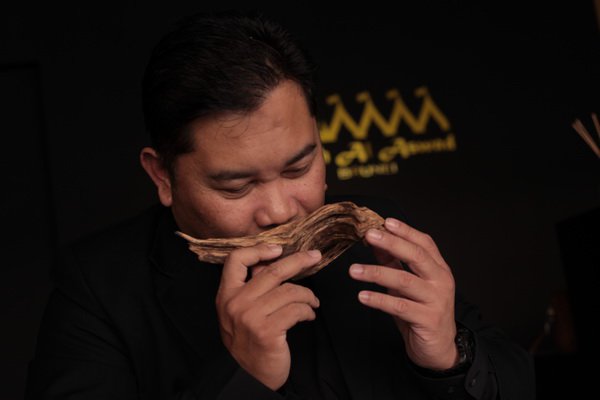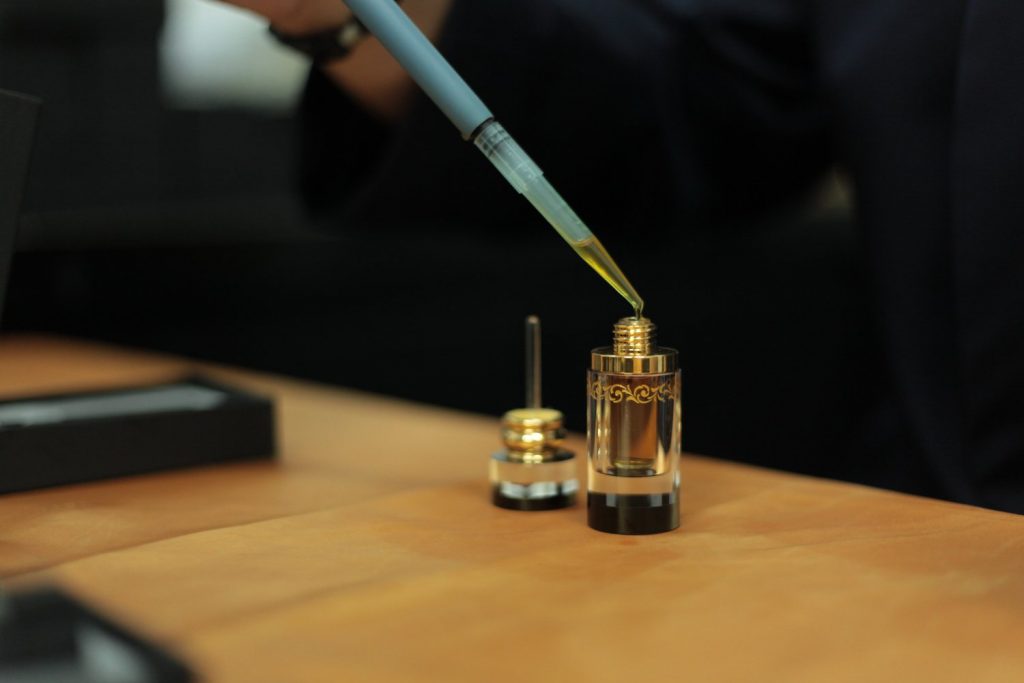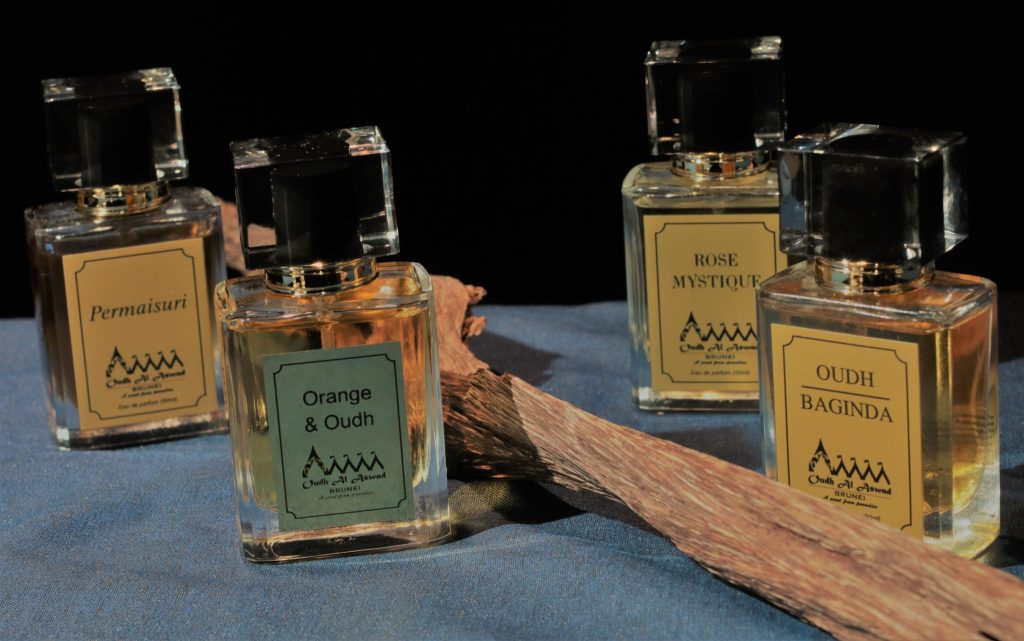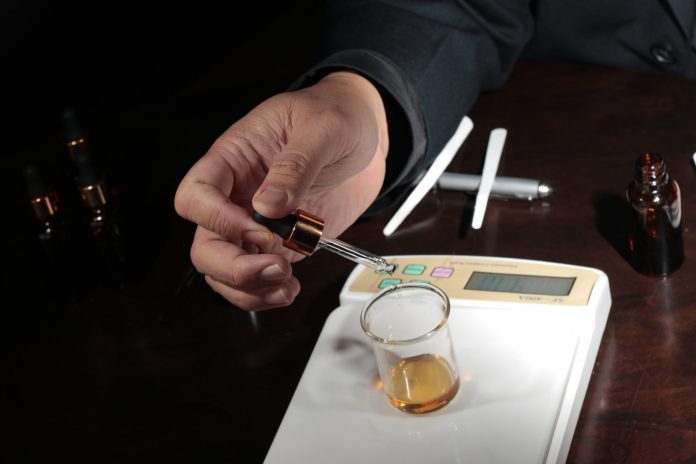In the oldest tropical jungles lies the world’s purest oudh.
It’s an old adage that Hj Raduan Hj Lamuddin knows by heart, passed down by his grandmother during their strolls through the now cleared jungles of Kampong Selayun.
Consumed and desired long enough to be a cultural touchstone in the Middle East, Oudh – known locally as gaharu and more broadly as agarwood – is said to be the most expensive timber in the world.
As we take a seat at Hj Raduan’s store in his hometown, he reaches for a bright, walnut brown bowl filed with chips of agarwood bearing dark resinous streaks.
“People sometimes call me Agarman,” jokes the 44-year-old as he begins to swirl the chips, before pulling out a piece that he draws my attention to. “Smell. Look. See anything?” he asks.
I shake my head, wondering how dry, decaying wood can fetch thousands of dollars for a single kilogramme. Hj Raduan whips out a lighter and begins to burn the chip, drawing out smoky incense. Warm, woody as expected, but it also teases out notes that are raw and musky.
“This is the scent people are after,” says Hj Raduan with an air of authority. “But it’s much more intense after we distill the wood to oil.”

History is not short on anecdotes of oudh; touting its power to heal ailments both mental and physical, using it for embalming when preserving the dead.
But for Hj Raduan, it’s the pursuit, not descriptions, of oudh’s regality that tells his true story. For the better part of a decade he’s traversed forests across the region, and was delivered a painful lesson that almost put him out of business at the halfway point.
“We always knew the value of gaharu growing up,” says Hj Raduan. “We knew that it had been traded from the shores of Brunei since civilization. But I had never seen what gaharu could be turned into.”
Bruneians returning from travels to the middle-east often spoke of the Arab’s fascination with oudh. “It was synonymous with every perfume store there,” said Hj Raduan. “It is almost like their signature scent.”
When Hj Raduan made the Hajj pilgrimage in 2006, he wandered into a perfume store where a small vial placed at the centre of the store caught his eye.
He inquired to the storekeeper of its contents. “He appeared to be almost disinterested in entertaining my request,” said Hj Raduan. “After I told him I was serious, he brought down the item… inside was 12 milliliters of pure oudh oil.”
The store sold the vial for 5,000 riyals – worth close to BND 2,000. Hj Raduan, who was then working for an insurance company, began to research more about agarwood.
As he busied himself with seminars and visited forests abroad, an opportunity opened for timber harvesting in Brunei. “The timing was right. I had done my homework. I was prepared,” he said. A year later, he was amongst the few to gain a license to harvest that allowed him to harvest gaharu.
Exporting to the region and beyond, Hj Raduan’s business was in a honeymoon, soon breaking the million dollar sales mark. But underneath the rapid growth were mismanagement and employees were pocketing company dollars.
After a sizable chunk of company funds had disappeared in 2011 and plans for a gaharu plantation failed to materialize, Hj Raduan’s main business of supply came to an abrupt halt.
“Harvesting became limited (due to policy) and the plantation was on hold,” he said. “I could not continue to supply. I thought I was done. Then one day I woke up and thought… I’ve been supplying all this while. Why can’t I be the one producing oudh oil?”

He still had the contacts, some capital and a base understanding of cultivating agarwood. Starting from scratch, he invested in learning perfumery abroad and with a discerning eye for detail, began approaching the distillation process with a precision of a chemist taking to his beakers.
He roped in a partner who would deal with marketing and began selling pure oudh oil first before venturing into developing his own signature fragrances.
But for scent that defines regality and prestige, a true milestone would be crafting a scent worthy of His Majesty Sultan Haji Hassanal Bolkiah Mu’izzaddin Waddaulah, the Sultan and Yang Di-Pertuan of Brunei Darussalam.
Blending oudh with five other ingredients, including cinnamon and sandalwood, Hj Raduan created a full bodied, masculine base. He topped it off with the citrusy zest of bergamont and lemon and a touch of floral notes.
When Yayasan Sultan Haji Hassanal Bolkiah hosted their Hari Raya celebration last year at the International Convention Centre – Hj Raduan was sure to reserve a booth. Enclosed within a crystal cube placed in a shimmering gold box was a vial of pure ‘Oudh Baginda’.
“It was a turning point for the business and my life,” beams Hj Raduan, as he proudly points to the plaque signed by His Majesty in his store. “From chopping gaharu in remote forests. And here I was, having the opportunity to present to His Majesty.”
With Oudh Baginda now Oudh Al-Aswad’s flagship scent, Hj Raduan is on a new mission to bring his fragrances across the world.

As demand for oudh grows globally prices are expected to remain high. But this isn’t just down to desirability or the rarity of agar tree.
“Contrary to what most believe, not all agar trees can be made into oudh oil,” says Hj Raduan. “It is only when the tree is infected by a mold that a dark, fragrant resin forms in the dense inner part of the tree to protect itself.”
It’s an uncanny, yet fitting parallel to Hj Raduan’s personal journey.
“The rough times were a hard price that I had to pay. But it is those lessons that lead me to the right path,” says the 44-year-old. “Oudh: it is truly a gift from above.”.












